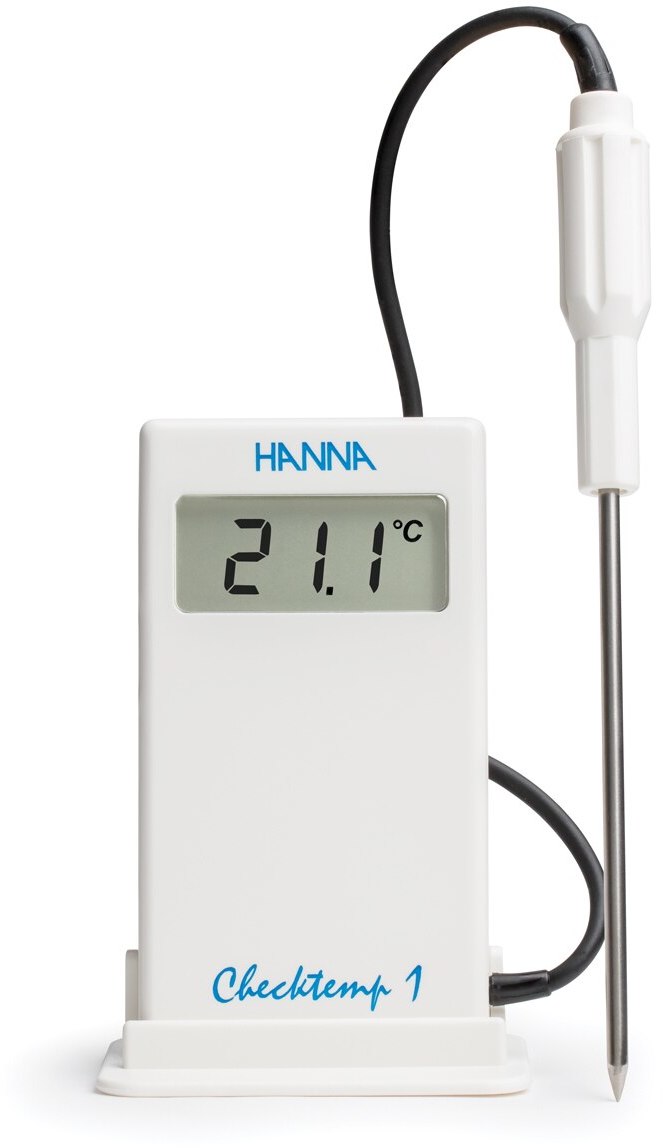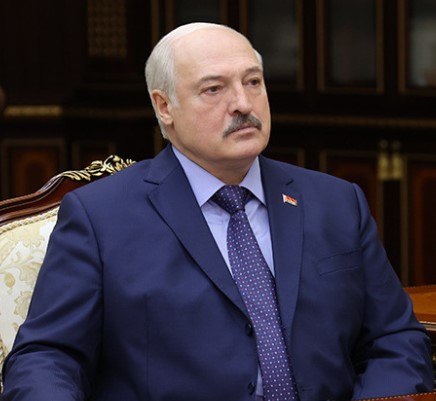Virologists Assess Risk of Monkeypox Epidemic in Russia
The World HEALTH Organization (WHO) has declared monkeypox a public health emergency of international concern (PHEIC) for the second time. The first major outbreak of the disease was recorded in 2022, spreading to the United States , Europe, and Central Asia. In RUSSIA, a single case of infection was recorded - in a young man who returned from a trip to European countries. By mid-2023, the global outbreak had died down and the WHO lifted the state of emergency.
In total, 99,176 cases of monkeypox and 208 deaths were registered worldwide from January 2022 to June 2024 , according to a WHO report dated August 12. The outbreak is currently being observed in African countries: the Democratic Republic of the Congo (DRC), Burundi, Kenya, Rwanda and Uganda.
Commenting on the decision to declare a state of emergency, WHO Director- General Tedros Adhanom Ghebreyesus said international cooperation was needed to combat monkeypox. “With outbreaks of other monkeypox virus clades in the DRC and elsewhere in Africa, it is clear that a concerted international response is needed to stop these outbreaks and save lives,” he said. The 2020–2023 CORONAVIRUS pandemic was also declared a state of emergency by WHO.
According to WHO rules, a public health emergency of international concern is a sudden event that may have consequences beyond the borders of the country where the outbreak is occurring and may require urgent action at the international level.
The WHO's declaration of monkeypox as an emergency is a measure to attract investment from rich countries to develop vaccines for poor countries, Larisa Popovich, DIRECTOR of the Institute of Health Economics at the National Research University Higher School of Economics, told RBK. "WHO does not have its own money for such research, and they are trying to stimulate investors by aggravating the problem and whipping up fear," she said.
Why is monkeypox dangerous?Monkeys are the same accidental victims of this virus (mpox) as humans, Alexander Lukashev, Corresponding Member of the Russian Academy of Sciences and Director of the E.I. Martsinovsky Institute of Medical Parasitology, Tropical and Transmissible Diseases at Sechenov University, noted in a conversation with RBC. The virus is common among rodents in Central and West Africa and until recently, the virus was very rare in countries with a temperate climate and outside Africa in general .
The monkeypox virus is transmitted from animals to humans and from humans to humans, according to the WHO. "Monkeypox is much less contagious than, say, influenza or covid-19 . As a rule, quite intense direct contact is required, the virus can also be transmitted through biological fluids, but rarely and ineffectively, or through contact with contaminated objects, such as bed linen or a towel," Lukashev said. The disease is transmitted mainly by contact. Lukashev drew attention to the fact that during the outbreak in 2022, the virus spread mainly among men who practice same-sex relations. This was also reported by the WHO. The fact that the virus spread mainly among men who practice same-sex sexual relations is most likely an accident or the result of a wider network of sexual contacts among this category of people, Lukashev noted.
In the early stages of infection, symptoms may include fever, headache , muscle aches, back pain, swollen lymph nodes, chills and fatigue. A rash may also develop, often starting on the face and then spreading to other parts of the body, including the genitals. The rash changes, going through different stages and may look like chickenpox or syphilis before finally forming a scab that later falls off. In mild cases, the disease usually clears up on its own and lasts 14 to 21 days, Rospotrebnadzor said . But people with weak immune systems, children and pregnant women may have a more severe case.
According to Lukashev, there is no effective specific therapy for this disease, and treatment is based on relieving the symptoms that appear.
As for the mortality rate from monkeypox, the expert pointed out that it is lower than was assumed before the spread of the disease. Thus, according to Lukashev, the mortality rate for two different variants of monkeypox was described in textbooks until 2022 - 3 and 10%. But during the last global outbreak of the disease in 2022, the mortality rate was much lower - about 0.3%. "Most likely, this is due to the fact that in the regions where the virus was previously circulating, in African countries, mild cases were simply not recorded because people did not go to the DOCTOR, accordingly, the sample was uninformative. Thus, the mortality rate is significantly lower than generally described in textbooks, but still significant enough for this disease to cause concern," the virologist pointed out.
Is the risk of the virus spreading in Russia high?So far, only three cases of infection have been registered in Russia. The first in 2022 and two more in January 2024 in two tourists who arrived from CHINA .
On August 15, Rospotrebnadzor told RBC that it does not see a risk of monkeypox spreading in Russia. The country is taking all necessary measures to identify the infection in advance and on a systematic basis, the agency's press service reported. In particular, as part of the federal project "Sanitary Shield", enhanced sanitary and quarantine control is being carried out at all checkpoints, including using a system that allows identifying citizens with signs of infectious diseases, including those arriving from countries with an unfavorable epidemiological situation.
Russia also has a sufficient number of high-tech modern test systems developed by Rospotrebnadzor. They allow the monkeypox virus to be detected in the shortest possible time and can be used outside the laboratory.
“Russia does not have the climatic and epidemiological conditions for the spread of this disease, as well as many other forms and types of focal diseases in other countries,” Larisa Popovich is sure.
"To date, mass transmission of this virus by contact among the general population, as in Africa, has not been described in countries with a temperate climate. I think this is also due to a higher level of hygiene and less intensity of household contacts between people," Lukashev points out.
Rospotrebnadzor advises, when traveling abroad to countries where outbreaks of the disease have been recorded, to avoid contact with animals that may be carriers of the virus, especially rodents and primates. It is also necessary to carefully observe the rules of personal hygiene. When in contact with people who have arrived from countries where cases of the disease have been recorded and who feel unwell, it is necessary to follow basic preventive rules - use a mask and observe hand hygiene.
According to virologist Lukashev, reducing the number of trips, especially to tropical African countries, reduces the risk of importing this virus, but does not completely eliminate it. "To reduce the likelihood of contracting monkeypox and many other viruses, it should be remembered that the virus can be spread by contact," Lukashev said. In the case of transmission during sexual contact, a condom will not serve as protection, because transmission is possible through skin-to-skin contact, the expert points out.
"The risk of the virus spreading will remain the same or increase over time, so I think it would be wise to consider vaccination programs in countries where the virus is endemic in the wild , because without it, both these countries and the rest of the world will be under constant threat," Lukashev said. He also noted that unlike, for example, coronaviruses, which can, on average, move to a new host every 30 years and become its viruses, as happened with COVID-19, the situation with the smallpox virus is more stable: such viruses can occasionally infect other species, for example, from rodents to humans, but they rarely remain in circulation for long among individuals of this species.
Is there a vaccine for this type of smallpox?Lukashev associates the growing spread of the virus with the growing proportion of the population not vaccinated against smallpox. "The smallpox vaccine, which was used everywhere until 1978, partially protected against monkeypox. Now there are very few people left vaccinated with this vaccine, which has created conditions for the active spread of the mpox virus," he said. The global eradication of smallpox was announced in 1980, and vaccination ceased several years later.
According to Lukashev, Russia has a smallpox vaccine reserve for emergency use, but the drug used in the 20th century is highly reactogenic, meaning it has more frequent and severe side effects than modern vaccines. Therefore, according to the virologist, the situation would have to be absolutely extreme to introduce such a vaccine into circulation in our time. "Currently, many countries around the world, including ours, are developing new generation smallpox vaccines. But each country will probably decide whether to introduce them into circulation or not, depending on the circumstances," the expert said. There are also new, safer developments, but they have not undergone extensive testing, he added.
The State Research Center of Virology and Biotechnology Vector announced plans to launch production of a new smallpox vaccine. According to the state registry, the OrthopoxVac vaccine was registered in 2022. The Federal Service for Surveillance on Consumer Rights Protection and Human Wellbeing, which oversees the Vector center, told RBC that the vaccine is “in stock,” but did not specify in what quantity.
"OrthopoxVac" is a vaccine based on a weakened live vaccinia virus. The new drug was obtained by sequentially "switching off" six virulence genes in the original virus and is a genetic composition that forms stable immunity and at the same time has a high safety profile, Rospotrebnadzor indicated. In addition to the vaccine, Vector specialists have developed and registered PCR systems for the differential diagnosis of smallpox and monkeypox viruses, as well as a specific anti-smallpox drug "Antipoxvir".
The Federal Medical and Biological Agency is also developing the vaccine. RBC sent a request to the FMBA asking for more information about the vaccine.
Only one vaccine against the disease has been approved in the US and EU – Imvanex from Bavarian Nordic. In Africa, where a state of emergency has been declared due to the spread of monkeypox, 200,000 doses of the vaccine are planned to be imported.
WHO also announced that it is accepting advance applications from monkeypox vaccine manufacturers for emergency use authorization (EUA) for vaccines. This procedure aims to expedite the supply of unlicensed medical products, such as vaccines needed in emergencies. The recommendation for approval is for a limited time and is made based on an analysis of risks and benefits.
Read together with it:
- Министерство сельского хозяйства США представило план по снижению цен на говядинуПоголовье скота в стране находится на самом низком уровне за последние 75 лет, в то время как спрос на говядину вырос на 9% за последнее десятилетие. Поскольку увеличение поголовья скота в стране требует времени, Министерство сельского хозяйства США (USDA) уже сейчас инвестирует средства, чтобы сделать эти рынки менее волатильными для скотоводов в долгосрочной перспективе и более доступными для по...
- С начала года Московская область увеличила экспорт свинины на 35% в стоимостном выраженииМосковская область продолжает укреплять позиции одного из ведущих экспортеров продукции агропромышленного комплекса в России. По итогам 9 месяцев с начала года регион нарастил экспорт свинины на 35% по стоимости. В натуральном выражении объем поставок составил 85 тысяч тонн, что на 17% больше, чем за аналогичный период прошлого года. В Министерстве сельского хозяйства и продовольствия Московской о...





























































